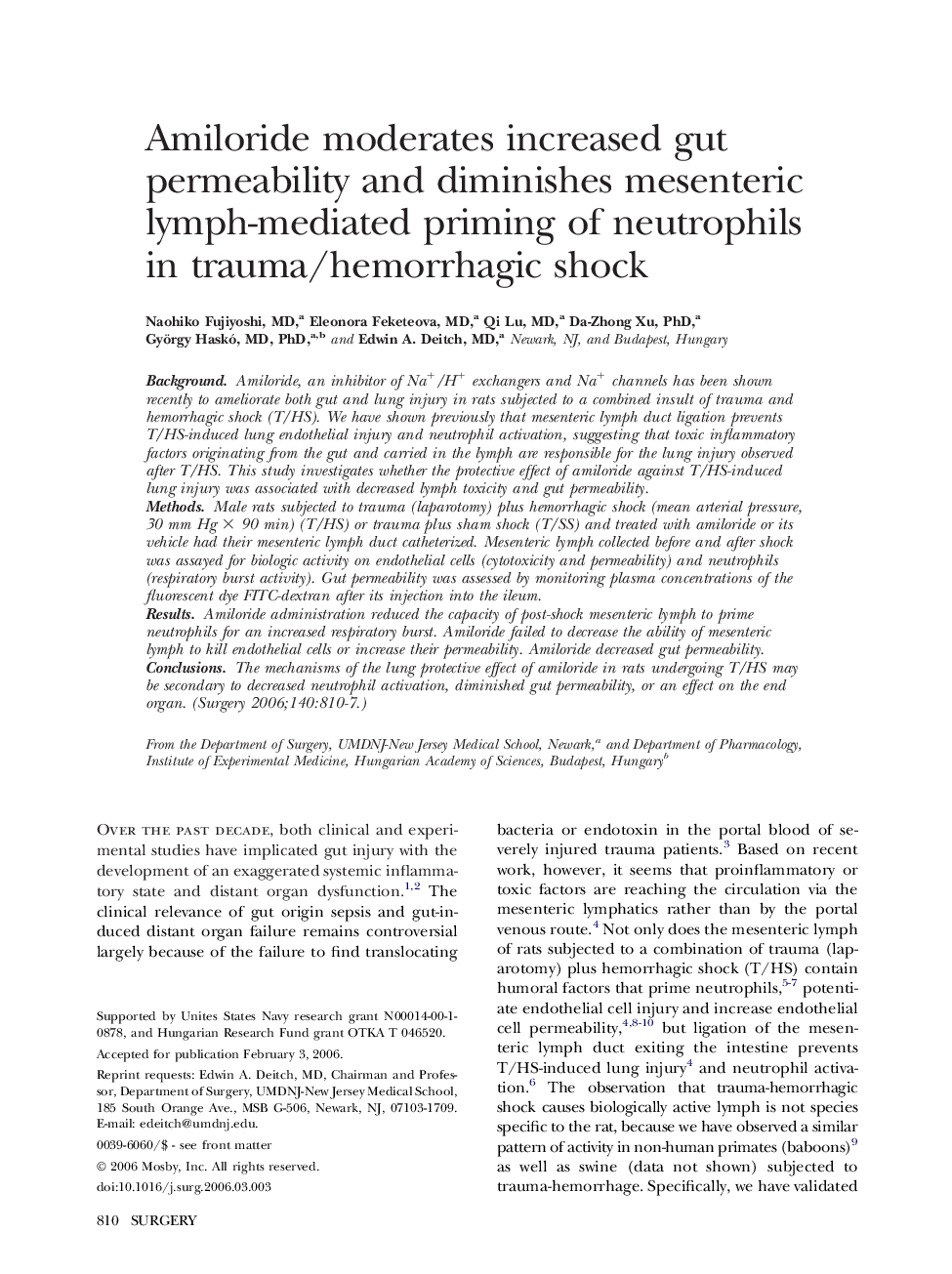| Article ID | Journal | Published Year | Pages | File Type |
|---|---|---|---|---|
| 4309895 | Surgery | 2006 | 8 Pages |
BackgroundAmiloride, an inhibitor of Na+/H+ exchangers and Na+ channels has been shown recently to ameliorate both gut and lung injury in rats subjected to a combined insult of trauma and hemorrhagic shock (T/HS). We have shown previously that mesenteric lymph duct ligation prevents T/HS-induced lung endothelial injury and neutrophil activation, suggesting that toxic inflammatory factors originating from the gut and carried in the lymph are responsible for the lung injury observed after T/HS. This study investigates whether the protective effect of amiloride against T/HS-induced lung injury was associated with decreased lymph toxicity and gut permeability.MethodsMale rats subjected to trauma (laparotomy) plus hemorrhagic shock (mean arterial pressure, 30 mm Hg × 90 min) (T/HS) or trauma plus sham shock (T/SS) and treated with amiloride or its vehicle had their mesenteric lymph duct catheterized. Mesenteric lymph collected before and after shock was assayed for biologic activity on endothelial cells (cytotoxicity and permeability) and neutrophils (respiratory burst activity). Gut permeability was assessed by monitoring plasma concentrations of the fluorescent dye FITC-dextran after its injection into the ileum.ResultsAmiloride administration reduced the capacity of post-shock mesenteric lymph to prime neutrophils for an increased respiratory burst. Amiloride failed to decrease the ability of mesenteric lymph to kill endothelial cells or increase their permeability. Amiloride decreased gut permeability.ConclusionsThe mechanisms of the lung protective effect of amiloride in rats undergoing T/HS may be secondary to decreased neutrophil activation, diminished gut permeability, or an effect on the end organ.
